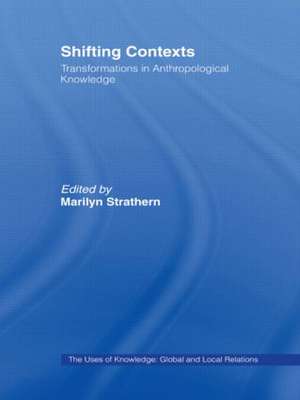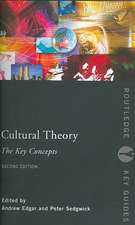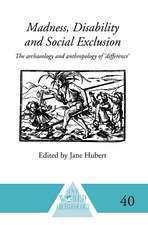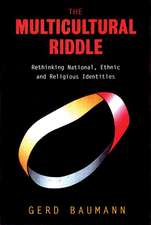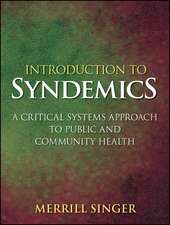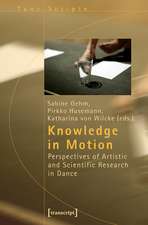Shifting Contexts: ASA Decennial Conference Series: The Uses of Knowledge
Editat de Marilyn Strathernen Limba Engleză Paperback – 24 aug 1995
| Toate formatele și edițiile | Preț | Express |
|---|---|---|
| Paperback (1) | 413.13 lei 6-8 săpt. | |
| Taylor & Francis – 24 aug 1995 | 413.13 lei 6-8 săpt. | |
| Hardback (1) | 1000.27 lei 6-8 săpt. | |
| Taylor & Francis – 24 aug 1995 | 1000.27 lei 6-8 săpt. |
Preț: 413.13 lei
Nou
Puncte Express: 620
Preț estimativ în valută:
79.05€ • 82.75$ • 65.80£
79.05€ • 82.75$ • 65.80£
Carte tipărită la comandă
Livrare economică 01-15 aprilie
Preluare comenzi: 021 569.72.76
Specificații
ISBN-13: 9780415107952
ISBN-10: 0415107954
Pagini: 208
Dimensiuni: 156 x 234 x 13 mm
Greutate: 0.38 kg
Ediția:1
Editura: Taylor & Francis
Colecția Routledge
Seria ASA Decennial Conference Series: The Uses of Knowledge
Locul publicării:Oxford, United Kingdom
ISBN-10: 0415107954
Pagini: 208
Dimensiuni: 156 x 234 x 13 mm
Greutate: 0.38 kg
Ediția:1
Editura: Taylor & Francis
Colecția Routledge
Seria ASA Decennial Conference Series: The Uses of Knowledge
Locul publicării:Oxford, United Kingdom
Cuprins
Introduction Foreword; Chapter 1 Forgotten knowledge, Mary Douglas; Chapter 2 Exhibiting knowledge, Mary Bouquet; Chapter 3 Building, dwelling, living, Tim Ingold; Chapter 4 Transformations of identity in Sepik warfare, Simon Harrison; Chapter 5 Human rights and moral knowledge, Richard Werbner; Chapter 6 Globalisation and the new technologies of knowing, Angela P. Cheater; Chapter 7 Cultures in collision, Stephen Hill, Tim Turpin; Chapter 8 The nice thing about culture is that everyone has it, Marilyn Strathern; Chapter 9 Afterword;
Descriere
An examination of the contexts in which people make different orders of knowledge as a prelude to questioning assumptions about the size of knowledge implied in the contrast between global and local perspectives.
